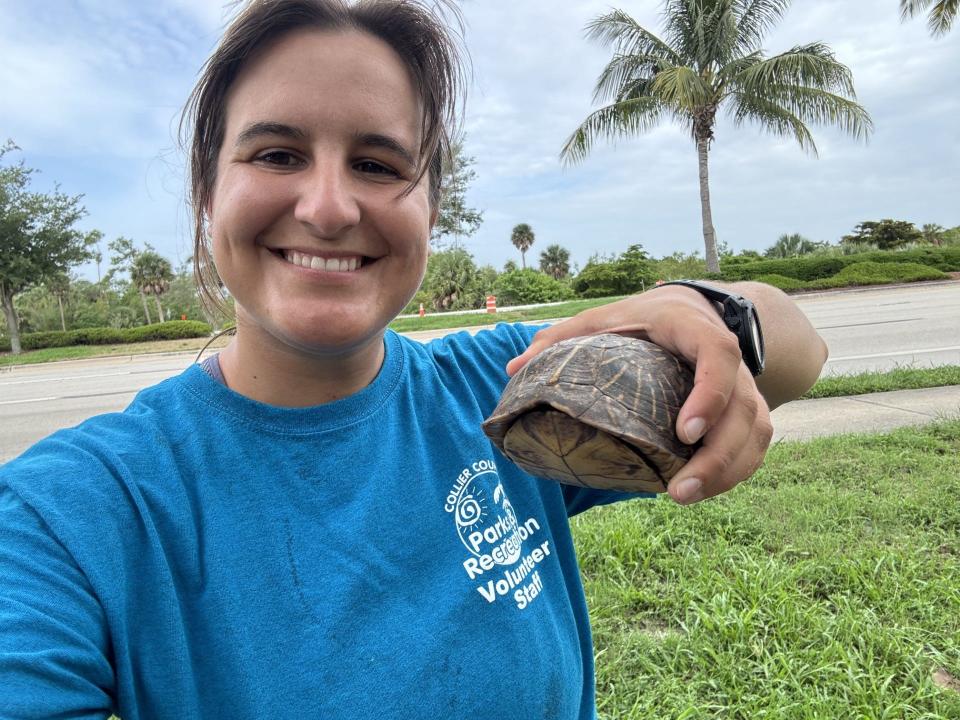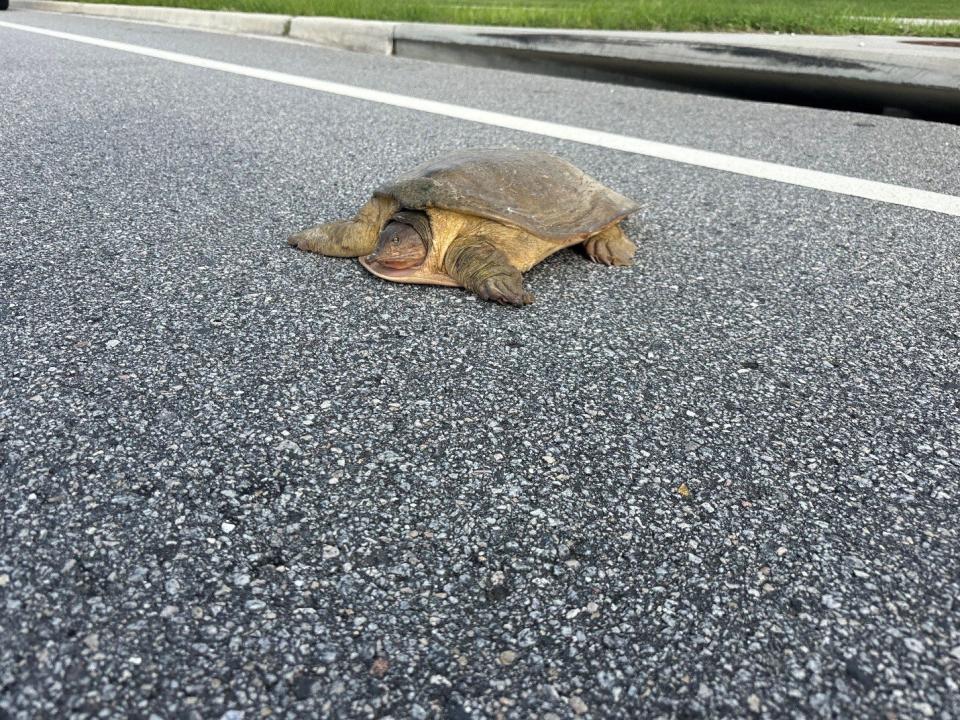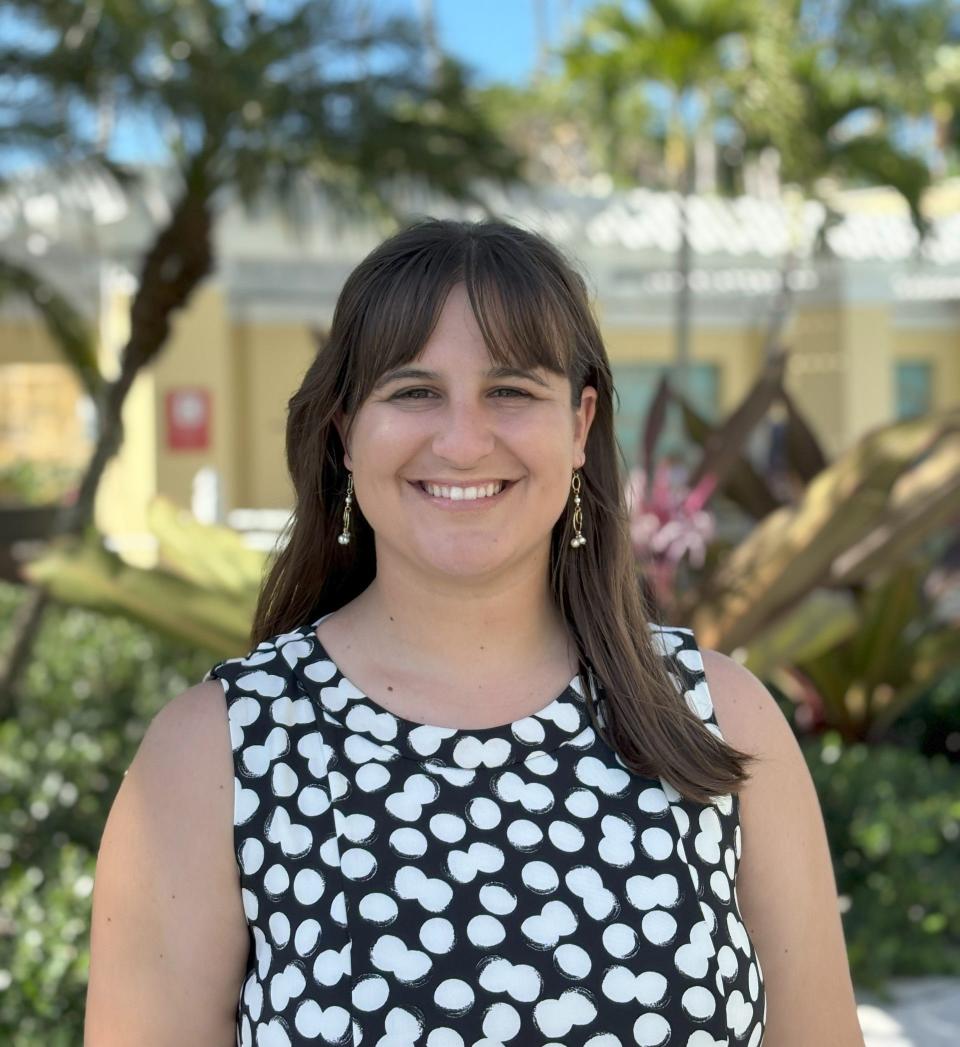Give wildlife a brake
I recently had a friend visit from California, a fellow biologist, and I was so excited to show her the natural beauty and wonderful critters in this awesome state of ours. We saw two alligators, a baby gopher tortoise, an iguana, four snakes, an armadillo, and so many birds. But all these animals were almost completely flattened against the black pavement, their calls silenced, their lives cut short in a split second as they were just trying to cross the road.
Wildlife vehicle collisions are one of the most significant threats for many species in Florida and beyond. According to Florida Fish and Wildlife, 11 endangered Florida panthers have been killed thus far in 2024 from car strikes, more than all the panthers that died in 2023. This is also one of the most common reasons why animals are admitted to the Conservancy of Southwest Florida’s von Arx Wildlife Hospital in Naples.

On the morning of Saturday, June 15, I was driving north on US 41 on my way home from my job patrolling Barefoot Beach for sea turtles. I saw a round shape in the center of my lane coming up, and my heart began to race. I placed the object in between my tires, but then at the last second my heart skipped a beat as I saw a small head retract into a shell. After putting my hazards on, I slammed on my brakes, leaped out of my car, and began running with my arms waving back to where the turtle lay in the road.

An adult Florida box turtle looked up at me as I lifted her gently, and I swear I could see how grateful she was in her eyes. I gently cradled her in my hands and exhaled as the car behind me stopped. However, I was in the far-left lane, and four cars sped by me as I was obviously attempting to cross to the safety of the grass, even after I tried waving to get them to stop.

Finally, a break in the traffic allowed me to cross, and I placed the turtle in some bushes in the direction she was going and scurried back to my car. I exhaled with relief.
This is not the first time I have done something like this. In fact, I have lost count. I have seen things that keep me up at night, including witnessing the terrible act of someone purposefully hitting a turtle. I have watched mother turtles fade away with their broken shells and open wounds. I have seen turtles trying to walk with amputated limbs or paralyzed hind legs. I tell you this not to make you pity me, but to inspire pity and justice for them.
I have also seen some incredible, inspiring stories. Wildlife can be surprisingly strong, especially turtles with their slow metabolism and wound healing capabilities. Rehabilitation facilities like von Arx Wildlife Hospital can assist in healing these animals, using creative treatments like wound vacs, honey, bra hooks, and super glue to help put turtle shells and other car strike wounds back together. But these poor innocent animals should not be in these positions in the first place.
It is not that difficult to avoid hitting wildlife with our cars. Staying alert, knowing what to look for, and being ready to stop when needed can really help. Following the laws that are already in place for our own protection, like speed limits and refraining from texting and driving, will also help in preventing animal vehicle collisions. Drivers must do better to prevent these tragedies from occurring. Please consider stopping for crossing wildlife.
Celina Ceballos is a graduate student in the Master of Science in Environmental Science at Florida Gulf Coast University, studying red tide's impact on sea turtles and manatee physiology. She graduated from Eckerd College with a marine science degree, minoring in journalism, and has many accolades including a national Fulbright Scholarship and a Barry Goldwater Scholarship and Excellence in Education. With extensive research experience in several of Florida's habitats, an educational background as a camp counselor and nature guide, and involvement in local scientific organizations, Ceballos is eager to share her knowledge and wisdom about various local scientific topics.
This article originally appeared on Fort Myers News-Press: Give wildlife a brake

